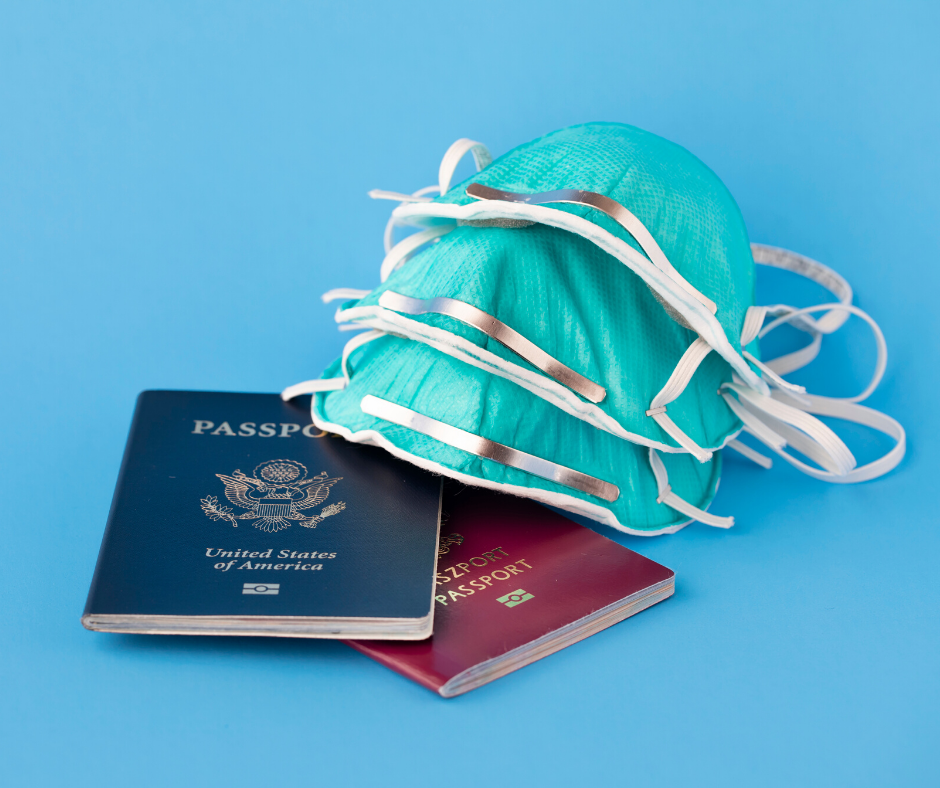Since March 2020, the majority of the country has been under strict stay-at-home orders, preventing many from taking their much anticipated summer excursions, Thanksgiving trips home, and holiday getaways. The novel coronavirus has had an unprecedented impact on the travel industry: flights cancelled, hotel rooms refunded, and people have been staying home social distancing.
The CDC recommends against traveling at this time. Additionally, more than 20 states have issued travel advisories (Verge). However, studies show that some people are still traveling. If you must go somewhere this winter, there are some ways to reduce risk in catching and/or spreading the virus.

Anxiety Around Traveling
After months of staying at home, the thought of going into the wild with strangers can be daunting. 72% of respondents said the potential risks of contracting COVID-19 during travel would play a key role in their decision to take a trip. Much of the stress around traveling comes from the inability to control surroundings. Travelers do not know how many people will be on their plane or what filtration system the hotel they are staying at uses. They cannot control whether those around them will be wearing masks.
Making the Choice to Travel
A big factor in choosing your destination is how you get there. If you decide to take a road trip, be extra cautious at rest stops and gas stations. Those are two of the most likely places to come in close contact with strangers and unclean surfaces (CDC). Consider bringing a portable air purifier if you are sharing a car with passengers not in your household.
For those not driving, many are opting for train travel. With locomotives, the risk really depends on train capacity. Dr. Julian Tang, a professor in the Department of Respiratory Sciences at the University of Leicester, recommends sitting in a place that offers good air flow: “If I have to take a train, [I] choose to sit in a place close to the door, as there is a more regular exchange of air there” (Bloomberg). Tang points out that older train systems like Tokyo, London and New York are “the worst possible situation for both aerosol and close contact transmission.” Consider bringing a portable air purifier to filter the air around you. The Wynd Plus has a medical-grade air filter which captures 99% of particles, including aerosols and industrial pollution particulates, to increase your air flow.
For many, plane travel is probably not likely – or at least long trips may no longer be an option – but there are some people who now feel ready to board a plane. Airlines have been taking a number of safety precautions, including booking flights at limited capacity and doing extensive cleanings in between flights, to ensure passengers' safety. Nonetheless, according to the CDC, "social distancing is difficult on crowded flights, [as] you may have to sit near others (within 6 feet), sometimes for hours" (CDC). A portable purifier like the Wynd Plus is a great accessory to bring on board with you. While the plane’s HEPA filters will filter out most of the air, a purifier can serve as extra protection for you and your seat mates. It creates a bubble of clean air around you to support your health.
Wynd Makes Travel Safer
Bring Wynd with you as you start to venture back into the world. Named the best air purifier for travel by Wired, the Wynd Plus is a portable air purifier that monitors and cleans the air as needed. It weighs less than a pound so you can bring it with you anywhere you go. Put it on the tray in front of your seat on a train or plane, bring it inside when you go into a rest stop, and allow some of the travel stress to melt away.
Travel Best Practices
Whether you are traveling by car, train, or plane – make sure you take steps to keep yourself and those around you safe. Always wear a mask, especially when inside. Wash your hands and use hand sanitizer. Maintain distance from others. If there is an option of indoor or outdoor seating – aim for outdoor. As we navigate this new normal, remember to think about your air quality, and how what you breath affects you and those around you.
